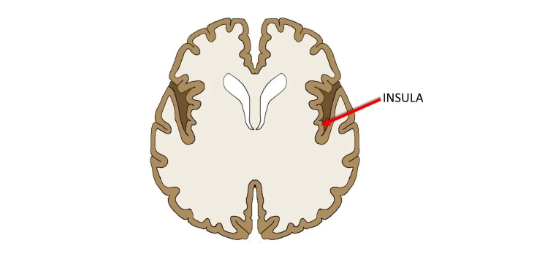Why We Think We’re Weak-Willed Losers
Listen to the full episode in your podcasting app: Apple Spotify Other apps
When you’re struggling to control your drinking or cut back, it’s easy to blame yourself and feel like you’re weak or you don’t have enough self-control.
What’s going on in the brain
A few studies have looked at loss of control in patients with alcohol use disorder and they’ve found that the less control someone has over their drinking, the weaker the connection between the insula and the areas of the brain involved in emotion regulation. The insula is involved in our concept of self-awareness. It allows us to differentiate between emotions so we know how we’re feeling and what to do about it.
A study from 2019 published in Biological Psychiatry compared drinking behaviors in twins and in non-twin siblings. They used data from the Duke Neurogenetics Study, the Human Connectome Project and the Teen Alcohol Outcomes Study to confirm that drinking more is associated with less brain volume in two main areas: the dorsolateral prefrontal cortex and the insula. The dorsolateral prefrontal cortex is involved in tasks like decision making, novelty detection, working memory, conflict management, and mood regulation.
Isn’t that interesting that heavy drinking shrinks the insula, which in other studies is associated with a loss of control over drinking?
To me, that says that the more we drink, the more alcohol damages the brain so the less we can control it and the more trapped we become. Insula dysfunction has also been linked to cravings, struggling to delay gratification, and how we experience rewards.
Every time I messed up and drank more than I had planned, which was almost every time I drank, I beat myself up and called myself a loser. I think we do this because we believe it’s a self-control thing. We believe what the stigma says about people who can’t moderate. We are quick to blame ourselves and call ourselves losers because we’re desperate to have control. If I’m a loser and I’m not strong enough to control my drinking, then it is in my power to fix it and just “be stronger”. No one wants to admit they’re powerless over alcohol, which is why acceptance is such a critical part of getting sober.
It’s not you, it’s the alcohol
One of the earliest signs of addiction is a loss of control. That doesn’t mean you’re a loser who can’t control yourself, it means you have lost the ability to control your drinking. It’s a real thing that happens, it's not a weakness. This doesn’t mean it’s not your responsibility to deal with your drinking and fix your life though.
If you’d like to hear more about loss of control and self-stigma, then check out episode 136:
Sources:
Luoma, J. Self-Stigma in Substance Abuse: Development of a New Measure. J Psychopathol Behav Assess. 2013.
Leeman RF, Beseler CL, Helms CM, Patock-Peckham JA, Wakeling VA, Kahler CW. A brief, critical review of research on impaired control over alcohol use and suggestions for future studies. Alcohol Clin Exp Res. 2014;38(2):301-308.
Leeman RF, Patock-Peckham JA, Potenza MN. Impaired control over alcohol use: An under-addressed risk factor for problem drinking in young adults?. Exp Clin Psychopharmacol. 2012;20(2):92-106.
